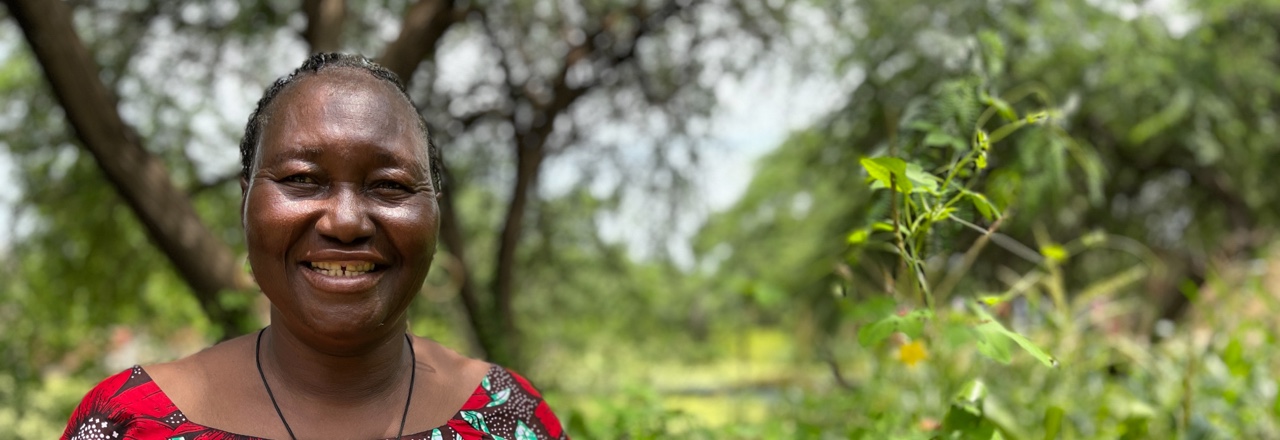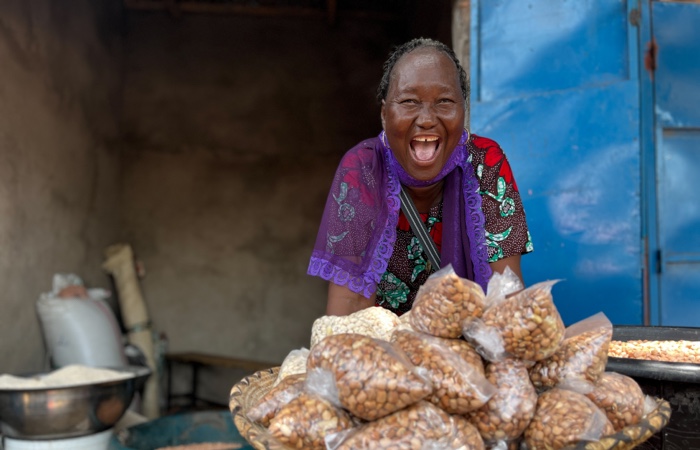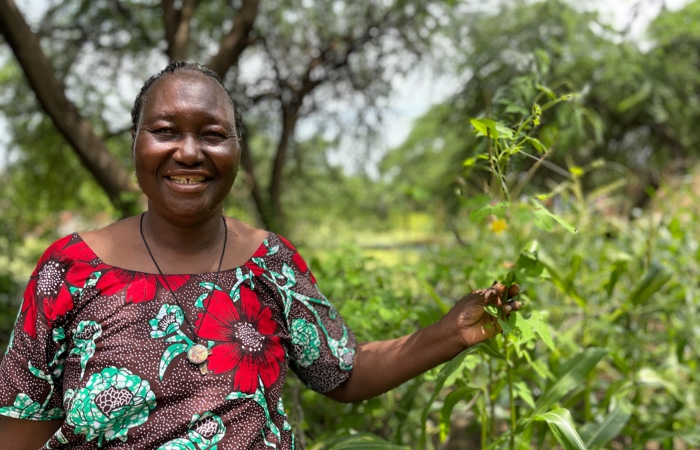

Finding Business Success at Age 53
Early each morning, 53-year-old Lucie Massal navigates the sandy streets of Koundoul, Chad, a small town about 25km from the country’s capital, N’Djamena. As she hops over puddles of muddy water, leftover from a recent rainstorm, she holds tightly onto a small, silver key in her hand. It is what she uses each day to unlock and lock the bright blue doors to her market stall.
Lucie, who describes herself as a “strong businesswoman,” says she has been working hard for the last 17 years to raise her seven children alone, following the death of her husband. This shop is her pride and joy.
Many years ago, I started off selling small piles of rice and peanuts on the side of the road," she says. “Eventually, I purchased a table to put them on at the market. But even then, the profit was never enough.”

Lucie Massal, a participant in CRS’ Savings and Internal Lending Communities (SILC) and Social Cohesion (SC) project, outside her shop in Chad.
Photo by Jennifer Lazuta / CRS
Then, a few years ago, Lucie joined a Savings and Internal Lending Community (SILC) group, which is part of Catholic Relief Services’ SILC programming in Chad.
For the first time, she had a place to safely save her money and also have access to credit in the form of small loans. The 29-member group, called ‘Louka Nougbi’ (‘Place of Charity’) meets each week and members contribute what they can to the “bank.” At the end of the month, members can take out a loan and have four weeks to pay back the amount, plus a small interest rate fee.
“This SILC group gives us access to credit. It is so difficult, especially as a woman, to have access to credit [at a bank]. But here I can take loans and build my business.”
Lucie used some of her first loans to pay rent for the market shop and now uses the loans to buy the food products she sells – dried beans, rice, peanuts, and other grains – in bulk, which she then sells in smaller quantities for an increased profit.

Lucie Massal, a participant in CRS’ SILC and Social Cohesion project in Chad, dreams of starting a garden for her family using a loan from the SILC group.
Photo by Jennifer Lazuta / CRS
She also appreciates the comfort that the group brings her.
“It helps us save money and it helps with social cohesion,” she explains. “You are united when you are in a SILC group. If we have needs, we help each other. It is a safety net, and everyone is involved.”
Lucie is now saving up her profits to start a garden for her family and says she takes pleasure in using some of her extra income to donate to her church and help her neighbors in need.
“I am so proud to be such a strong, independent businesswoman - look at me!” she says smiling in front of her shop. “My dreams came true! I thank God.”
The CRS Savings and Internal Lending Communities (SILC) and Social Cohesion (SC) project aims to increase the economic resources and social cohesion of communities affected by poverty and conflict in Chad. CRS has been working with local Caritas partners in Chad since 2010 to implement the SILC methodology and added a complementary social cohesion component in 2017 to increase solidarity in conflict-affected communities. Funded by CRS, the project now works in four dioceses – N’Djamena, Gore, Doba, and Lai.

